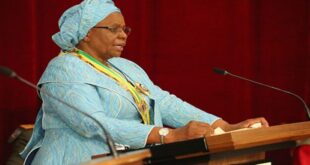For decades, France has maintained a strong and often destructive influence over its former African colonies. Despite the official end of colonial rule in the 1960s, France has continued to exert economic, political, and military control over many African nations, often to the detriment of their sovereignty and development. This neo-colonial grip has fueled instability, corruption, and poverty, leaving many Africans to question whether France is a partner or a predator.
1. Economic Exploitation Through the CFA Franc
One of France’s most glaring examples of continued dominance is the CFA franc, a currency used in 14 African countries, split into two monetary zones (West African CFA and Central African CFA). The system requires these nations to deposit 50% of their foreign reserves in the French Treasury, effectively giving France control over their monetary policy.
African countries have limited autonomy over their economies.
France benefits from guaranteed access to African resources and markets.
Critics argue the CFA franc perpetuates dependency and stifles economic growth.
Despite recent reforms (such as renaming the West African CFA to the “Eco”), France still maintains significant influence, raising concerns about true financial independence.
2. Military Interventions and Regime Changes
France has consistently interfered in African politics, often under the guise of “peacekeeping” or “counterterrorism.” However, many of these interventions have served French interests rather than African stability.
Operation Serval (2013) and Barkhane (2014-2022) in Mali were criticized for failing to eliminate jihadist threats while allowing France to control Sahelian resources.
France has been accused of propping up authoritarian leaders (like Chad’s Idriss Déby and Gabon’s Omar Bongo) who serve French interests.
When leaders resist French influence (like Guinea’s Sékou Touré in 1958 or Mali’s Assimi Goïta in 2021), France has either isolated them or supported coups.
In 2023, military juntas in Mali, Burkina Faso, and Niger expelled French troops, accusing France of exploitation and espionage rather than genuine security assistance.
3. Exploitation of Natural Resources
France has long benefited from Africa’s vast natural resources while leaving local populations impoverished. French companies like TotalEnergies, Areva (now Orano), and Bolloré dominate key sectors (oil, uranium, logistics) with unfair contracts.
Niger, one of the world’s poorest countries, supplies uranium to power 1 in 3 light bulbs in France, yet most Nigeriens live without electricity in Africa.
Gabon and Congo-Brazzaville’s oil wealth benefits French corporations while corruption and poverty persist.
French companies often negotiate lopsided deals that deprive African nations of fair revenue.
4. Political Manipulation and Françafrique
The term “Françafrique” refers to France’s shadowy network of political, economic, and military control over its former colonies. This system relies on:
Secret agreements that force African nations to prioritize French interests.
Support for corrupt leaders who comply with French demands (e.g., Félix Houphouët-Boigny in Côte d’Ivoire).
Assassinations and coups against leaders who resist (like Thomas Sankara in Burkina Faso).
Even today, France maintains military bases across Africa and influences elections, ensuring compliant leadership.
5. Cultural Domination and Language Control
France promotes the French language and education systems in Africa, ensuring cultural dependency. While language ties can be beneficial, they also:
Marginalize indigenous languages and knowledge systems.
Prioritize French corporate interests over local development.
Create an elite class that serves as intermediaries for French influence.
Conclusion: Is France a Partner or an Oppressor?
France’s influence in Africa has often been more exploitative than beneficial. From economic strangulation through the CFA franc to military interventions and resource extraction, France has prioritized its interests over African sovereignty and development.
However, recent resistance from African nations—such as Mali, Burkina Faso, and Niger expelling French troops—shows a growing demand for true independence. If Africa is to prosper, it must break free from neo-colonial control and forge its path forward.
Africa has not colonized any country. Historically, Africa itself has been colonized by European powers during the Scramble for Africa (late 19th to early 20th century). However, there are no instances of African nations colonizing countries outside the continent.
That said, some African empires and kingdoms did expand their influence over neighboring regions in pre-colonial times. Examples include:
Ancient Egypt – Expanded into parts of the Levant and Nubia.
Kingdom of Kush (Nubia) – Conquered Egypt during the 25th Dynasty.
Carthaginian Empire (North Africa) – Established colonies in Sicily, Sardinia, and parts of Spain.
Ethiopian Empire – Expanded into parts of the Horn of Africa.
Mali Empire – Exerted influence over neighboring West African regions.
Songhai Empire – Controlled trade routes and territories in West Africa.
Almoravid & Almohad Dynasties (Berber empires) – Expanded into parts of Southern Europe (Spain and Portugal).
The question remains: Will France finally allow Africa to be free, or will it continue to cling to its colonial legacy?
This article was written by Gistfox Media
 Gistfox Your News Window To The World
Gistfox Your News Window To The World 




